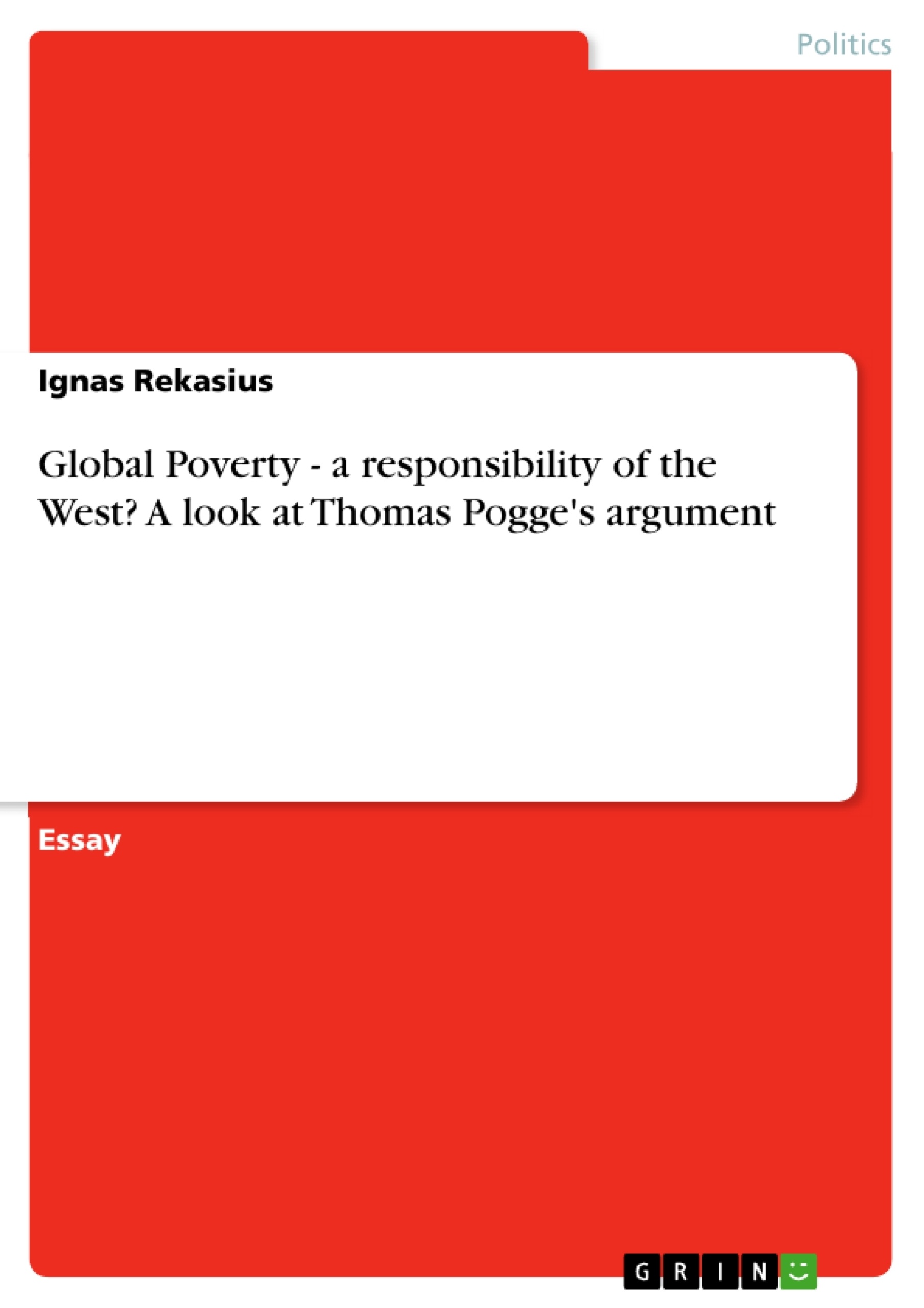The 25th Article of the United Nations Declaration on Human Rights declares each human being as having the right to “a standard of living adequate for the health and well-being of himself and of his family,” which comprises of food, clothing, housing and medical care amongst others (UN General Assembly, 1948). For over 767 million people today, or a tenth of the world’s population located primarily in the Sub-Saharan Africa and South Asia, those rights are being taken away, further undermining the ability to pursue other basic civil and political rights as a consequence.
For long, the eradication of global poverty has been at the forefront of political discussion amongst the political philosophers and cosmopolitan internationalists of the developed nations. The gap between the rich and the poor in wealthy and yet rapidly growing societies such as the United States, Brazil or China has widened immensely in the aftermath of the global economic recession of 2008. Although the socialist revolutionary ideas portrayed in Bernie Sanders’ presidential campaign in 2016 escalated populous grievances about the growing economic inequality and political lobbying, the policies of the wealthy nations fail to address the scale of global poverty within their foreign policy agenda.
There are numerous reasons why the West should take responsibility for global poverty. Perhaps the most influential and challenging political philosopher on global justice and human rights, Thomas Pogge, believes that wealthy societies are to be held responsible for the global poverty due to shared history, resources and global economic order.
While I agree with Thomas Pogge’s arguments that wealthy societies are to blame for the expanding global inequality and thus ought to be responsible for restoring equality, the nature of political development and social relations within each individual developing country, I believe, shall be taken into thorough consideration whilst eradicating poverty through grassroots decision-making.
Inhaltsverzeichnis (Table of Contents)
- Do you agree with Thomas Pogge's argument that wealthy societies and their governments are responsible for global poverty?
- The Argument for Western Responsibility
- Historical Injustices and Global Poverty
- Positive and Negative Duties of Wealthy Nations
- The Inequality Spiral
- Critiques of Cosmopolitan Justice
- Rawls' Critique of Cosmopolitanism
- Rawls' Difference Principle and the Role of Political Culture
- Rawls' Concept of 'Burdened Societies'
Zielsetzung und Themenschwerpunkte (Objectives and Key Themes)
This essay explores the complex issue of global poverty and examines the argument that wealthy societies and their governments bear responsibility for its existence. It investigates the perspectives of Thomas Pogge, a prominent advocate for Western responsibility, and John Rawls, a leading critic of cosmopolitan justice.
- Global poverty as a human rights violation
- The role of historical injustices in shaping global inequality
- The impact of global economic order on poverty
- The ethical obligations of wealthy nations towards developing countries
- The debate between cosmopolitanism and alternative perspectives on global justice
Zusammenfassung der Kapitel (Chapter Summaries)
- The essay begins by outlining the argument that wealthy societies are responsible for global poverty. This is based on the premise that the current global economic order and historical injustices have disproportionately benefited the wealthy at the expense of the poor.
- It then explores Thomas Pogge's argument that wealthy nations have a moral obligation to address global poverty. He contends that their involvement in the creation and maintenance of an unjust global order makes them complicit in the suffering of the poor.
- The essay then examines John Rawls' critique of cosmopolitan justice. Rawls argues that while restructuring global economic order is important, achieving global distributive justice requires a broader approach that considers the role of political culture and national development.
Schlüsselwörter (Keywords)
This essay centers on the key concepts of global poverty, cosmopolitan justice, historical injustices, global economic order, and the ethical responsibilities of wealthy nations towards developing countries. It explores the arguments of prominent political philosophers such as Thomas Pogge and John Rawls, examining their perspectives on the causes of global poverty and the implications for international relations.
Frequently Asked Questions
What is Thomas Pogge's main argument regarding global poverty?
Pogge argues that wealthy societies are responsible for global poverty because they impose a global economic order that perpetuates inequality and benefits from a shared history of injustice.
How does John Rawls' view differ from cosmopolitan justice?
Rawls critiques cosmopolitanism by emphasizing the role of a country's own political culture and national development, focusing on 'burdened societies' rather than just global redistribution.
Is global poverty considered a human rights violation in this essay?
Yes, the essay references Article 25 of the UN Declaration on Human Rights, stating that poverty undermines basic civil and political rights.
What are "positive" and "negative" duties in the context of global justice?
The essay explores whether wealthy nations have a positive duty to help or a negative duty to stop upholding an unjust global economic system that harms the poor.
What role does historical injustice play in global inequality?
The essay argues that current wealth disparities are often rooted in historical processes that disproportionately benefited Western nations while disadvantaging others.
- Quote paper
- Ignas Rekasius (Author), 2016, Global Poverty - a responsibility of the West? A look at Thomas Pogge's argument, Munich, GRIN Verlag, https://www.grin.com/document/351026



